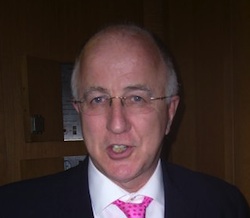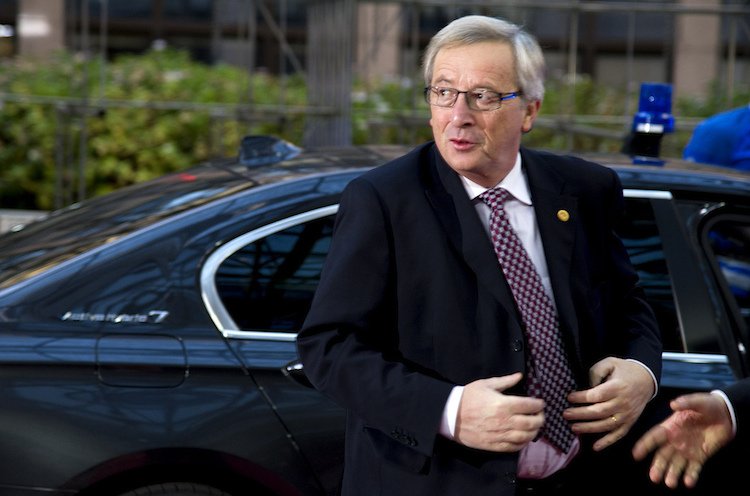
Manufacturing picks up pace in leading economies; Europe lags
June 25, 2014
Holland is the only European team who could win this World Cup
June 25, 2014
Denis McShane
One of the strangest aspects of the European Commission president soap opera is the discovery by many of the London political-media elite that political considerations appear mysteriously to have entered European Union affairs.
There are accusations that the European Parliament has made a ‘power grab’. Well, that’s what Parliaments exist for. There is the discovery that the party grouping that has won the most seats thinks it has a say over who the EU’s chief executive should be. Perish the thought this might happen in the Commons or Bundestag. There is the argument that party politics played a role in elevating Jean-Claude Juncker to his present position of being the EU Commission President in waiting.
Like the myth that the EEC was simply a trade project – do any of the English Eurosceptics who advance that position ever read the debates in the Commons? From the opening moments of the Coal and Steel Community in 1950 when Harold Macmillan told the Commons it was unacceptable that a committee in Europe could decide which steel plants or coal mines should close down, the Commons has repeatedly debated the intensely political nature of the European beast.
The EU is about politics, politics, politics. Always was, is and will be. There is the notion that Commissioners are apolitical civil servants. They certainly swear an oath to serve the Commission just as every senior British minister swears a Privy Council oath to put the Queen’s interests above all other considerations. But they remain politicians – ex prime ministers, ex party leaders, ex senior ministers and rightly so. Commissioners have to have a political sense and like EU Sir Humphries have to be able to stop or delay projects put up by the permanent EU bureaucracy which will not fly politically.
There has been no sudden power grab by the European Parliament. The 2007 Treaty of Lisbon sets out the obligation of the European Council to take into account the views of voters in deciding to nominate the President of the Commission. This has been on the table for six or seven years and openly discussed in the Party of European Socialists and the European People’s Party over that period. The same commentators who complained about the democratic deficit are now the ones leaping to their iPads to condemn a modest attempt to link votes to choice of leaders.

David Cameron has tried to prevent Jean-Claude Juncker from becoming President of the European Commission (photo: CC European Council on Flickr)
Britain’s political parties and London commentators however take their own wheelbarrow of sand with them to any EU debate in order to bury their heads and not hear or see what is going on. The Conservatives pulled out of the EPP but Mr Cameron’s seems to think that he alone can overturn what his fellow centre-right heads of government agreed some time ago. Labour has always wanted to keep the nomination of the Commission president in government hands. But Labour of late has been seen so pallidly unenthusiastic about the EU its point of view is heard politely and then ignored. As a senior SPD figure complained in Berlin during the election: ‘When will Labour re-engage with Europe the way you did in the 1990s?’
The rest of Europe just ignore the moans from Britain that the EU should be a non-political project. They remember how Tony Blair and John Major manouevred to stop senior European politicians like Guy Verhofstadt or Jean-Luc Dehaene from becoming Commission President. That was raw power-play politics at its crudest. Now David Cameron wants to make a power grab to return the exclusive power over who becomes the Commission President to the Council. If he can find just a few allies he can achieve this, at least in the sense of blocking Juncker.
It is Cameron’s political failure that he has so alienated natural allies in Europe that a power grab by the Council in the sense of dropping Juncker is not going to happen. Now London has to decide who to send as its Commissioner. This is also naked party politics as it appears Cameron – like other government heads – will make a party political appointment to reward or console a discarded party politician.
It is the utmost cant to argue that everything London wants or says is noble and disinterested. The Junckernaut saga from day one has been about Cameron managing internal Conservative Party problems over Europe. It has also been about British political disengagement from the EU. European Union politics is no different from British, American or French politics. It is about who, whom and how to win friends, frighten enemies and create networks of influence to achieve stated ends.
The EU is about politics, stupid. The error of the London elites is to pretend anything else.




